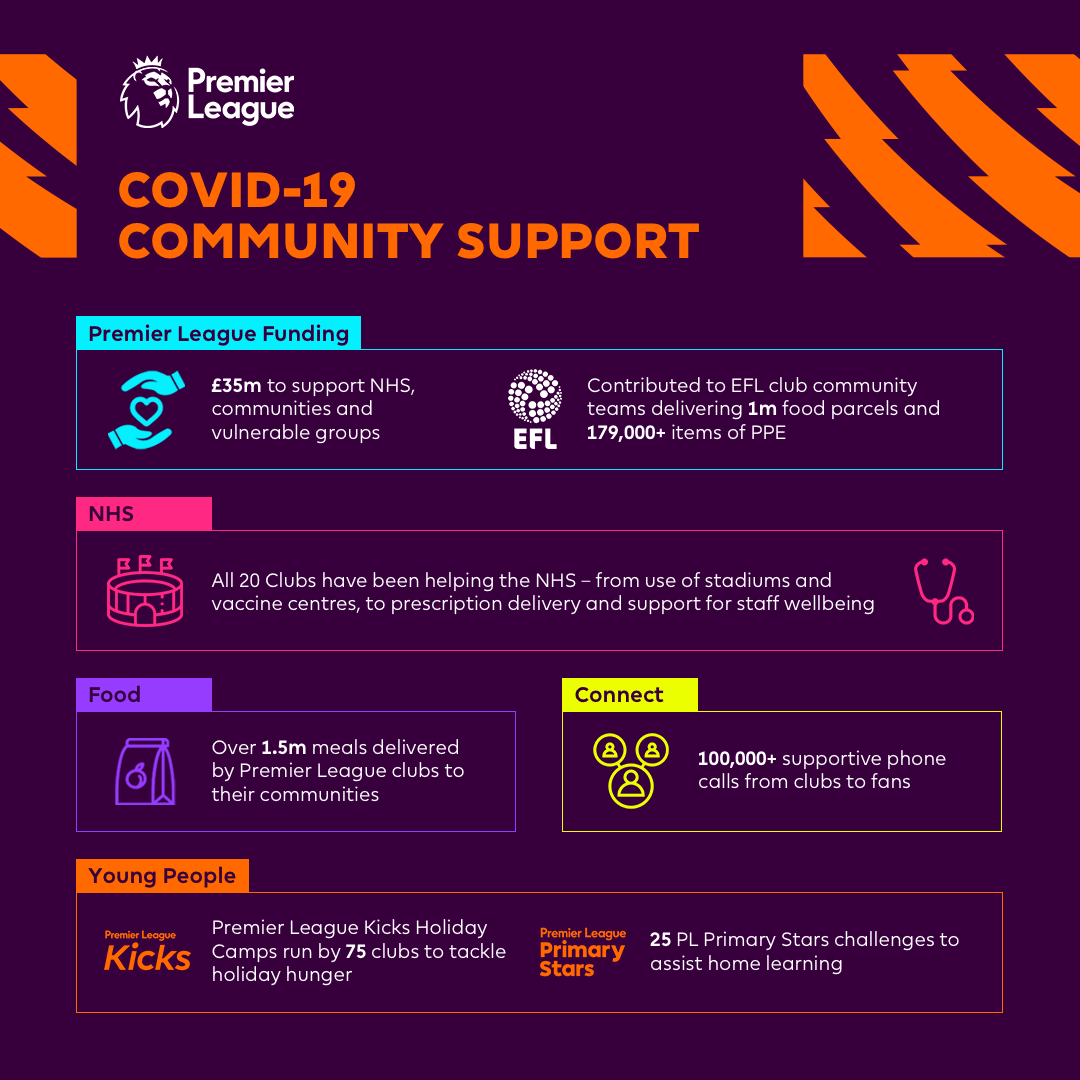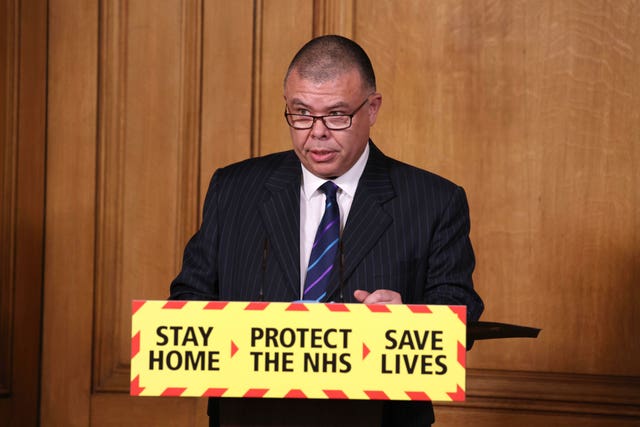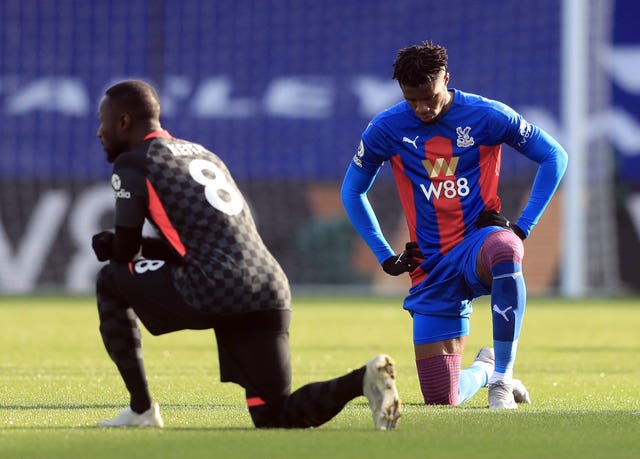The coronavirus pandemic will have cost the Premier League close to £2billion by the end of the season, its chief executive Richard Masters has said, but he hopes to start next season with full stadia.
Saturday marks a year since the suspension of the English professional game because of the Covid-19 outbreak, leaving the league open to demands for rebates from broadcasters and its clubs unable to welcome spectators to any meaningful level since.
And Masters laid bare the extent of the financial damage the pandemic had inflicted on the competition and its clubs.

“There have been very significant financial losses, not just in the Premier League but throughout the football pyramid,” he said.
“Towards the end of this season, we’ll get towards £2billion lost since the start of the pandemic in match day revenue and broadcast revenue.”
Masters has great optimism for the future, however, and believes there is a chance of full stadia for the start of the 2021-22 season.
“A lot of things have got to happen at the right time to get there, but we believe it’s an achievable goal,” he said.
Masters confirmed that the league hoped to be able to play the final two rounds of the current season in front of up to 10,000 spectators under the Government’s road map for the easing of coronavirus restrictions, and said the continued success of the vaccination programme was key to venues returning to full capacity in the future.
Masters was asked about the hours and days leading up to the suspension last March.
He attended the last Premier League match before the suspension, Leicester v Aston Villa, on March 9.
The Premier League, FA, EFL and WSL have collectively agreed to postpone the professional game in England
Full statement: https://t.co/XcDyzBp4Ol pic.twitter.com/cmYjoY3LRR
— Premier League (@premierleague) March 13, 2020
“I remember travelling back from that match, feeling we were under criticism, that we were under scrutiny for continuing to play football,” he said.
On the evening of Thursday, March 12 the league stated its intention to carry on playing but immediately afterwards, Masters was informed that Arsenal manager Mikel Arteta and Chelsea winger Callum Hudson-Odoi had tested positive.
“Those were the first positive tests in the Premier League cohort that we knew about, and that changed everything,” Masters said.
The decision to suspend the 2019-20 season came the following day, and Masters recalled that the mood at the clubs shareholders’ meeting to rubber-stamp it was “calm” and “realistic”.
He insists that right from the start, there was no push to either curtail the season or declare it null and void.
“As early as that first meeting, the primary objective of the Premier League and its clubs was to finish the season,” he said.
“That collective will never really wavered throughout.”

Project Restart gathered momentum in May when clubs returned to training, after players were given assurances over safety from deputy chief medical officer Jonathan Van-Tam among others.
Masters described the conclusion of the restarted season as a “sprint”, in contrast to the 2020-21 campaign.
“This feels more like a marathon. The schedule that we have put in front of the players and the clubs is pretty brutal,” he admitted.
A surge in new cases at the turn of the year, driven by a more transmissible variant of the virus, threatened to derail the season as matches were forced to be postponed, sometimes at very late notice. Masters said the league had not been near to a further suspension at that point, but that it was “the nearest they had come” since restarting last summer.
The league tightened safety protocols and introduced new ones, including reminders to players around over-exuberant goal celebrations and contact before and after matches.
Masters believes those two areas have “dramatically changed” and pointed to the reduction in positive tests as proof – they have been stable at just two per week for five weeks in a row now.

The end of the season will give players chance to think again about the best way to promote the anti-racism message.
The death in police custody of George Floyd in the United States last May sparked a rise in Black Lives Matter protests, and when the Premier League resumed the following month players took the knee as a show of solidarity.
It is a gesture which has been almost unanimously observed since, although Wilfried Zaha has said he will no longer do so because it was “something we just do now”.
Masters said taking the knee would continue “to the end of the season” and that there would then be fresh talks with players over the most effective way forward.
/https%3A%2F%2Fsportsmole-media-prod.s3.gra.io.cloud.ovh.net%2F20%2F46%2Frichard-masters.jpg)
/https%3A%2F%2Fsportsmole-media-prod.s3.gra.io.cloud.ovh.net%2Fuploads%2F2025%2F10%2Fdylan-vente-in-action-for-heerenveen-on-september-13-2025-box-to-box-pictures-68f8c0368f9d3614574824.jpg)
/https%3A%2F%2Fsportsmole-media-prod.s3.gra.io.cloud.ovh.net%2F24%2F43%2Fliverpool.jpg)
/https%3A%2F%2Fsportsmole-media-prod.s3.gra.io.cloud.ovh.net%2F24%2F24%2Fchadi-riad_2.jpg)
/https%3A%2F%2Fsportsmole-media-prod.s3.gra.io.cloud.ovh.net%2Fuploads%2F2025%2F11%2Fimago1068160851-1-69174f9ac80bb111371249.jpg)